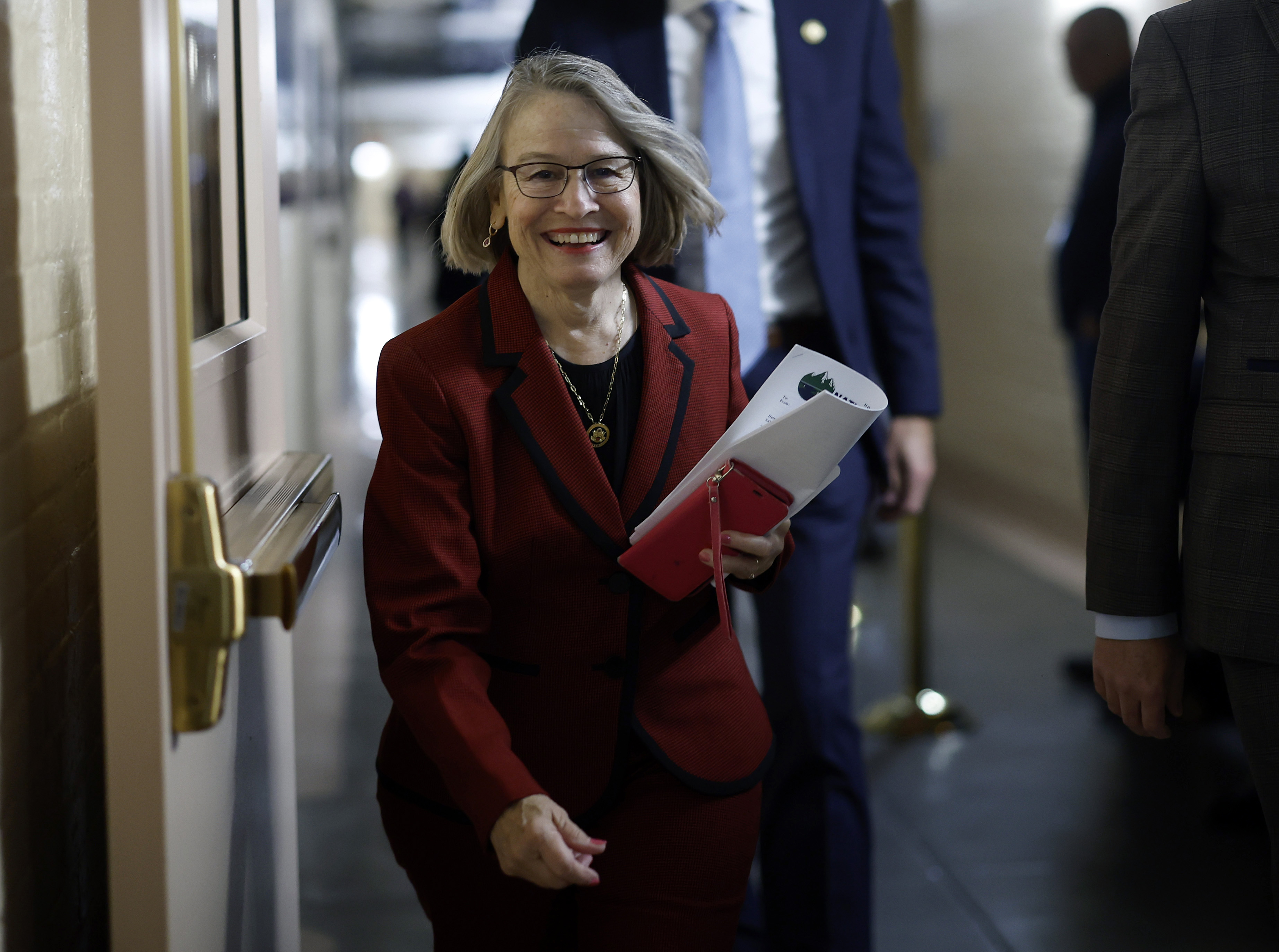WASHINGTON — President-elect Donald Trump on Day One can move to cut the federal deficit by $1.4 trillion over the next decade by rescinding President Biden’s executive actions, according to a report.
The potential cost-cutting was identified by the Committee for a Responsible Federal Budget, a nonprofit that advocates for fiscal restraint, as Trump’s informal Department of Government Efficiency, led by Elon Musk and Vivek Ramaswamy, looks for areas to slash spending.
The Tesla billionaire and close confidant of Trump, 78, has already vowed to cut the bloated federal budget by “at least $2 trillion.”
“Yes, the federal deficit is a longstanding bipartisan problem — but even still, it’s truly remarkable how much damage was done by President Biden’s executive actions alone,” Ramaswamy told The Post.
“The voters have given us a mandate not for incremental change, but sweeping change, and they deserve to get it.”
Biden, 82, did away with at least 12 of his predecessor’s executive orders on his first day in the Oval Office — including several immigration-related actions that paved the way for billions more to be spent on federal benefits for migrants.
“Unlike most deficit reduction measures, reversing costly executive actions from the Biden [administration] would not require Congressional action, and could be done through the rulemaking process,” the nonprofit’s report notes.
Ramaswamy added that “11th hour Biden cash giveaway sprees” and regulatory actions by the outgoing administration would also not be tolerated — one of which already handed a $6.6 billion loan to an electric vehicle rival of Tesla: Rivian.
CRFB said up to $550 billion could be saved by eliminating Biden’s pending plans to forgive student loan debt — including the SAVE Income-Driven Repayment Program, which alone could pare spending by up to $275 billion, according to the report.
The SAVE initiative, in which 8 million borrowers are enrolled, already is in limbo pending the outcome of a federal court case — with Missouri Republican Attorney General Andrew Bailey in August notching a win after the US Supreme Court upheld a decision by the 8th Circuit Court of Appeals to halt the debt cancellation.
President Trump can achieve more than $1 trillion in savings by reversing some of President Biden’s policies, according to the Committee for a Responsible Federal Budget:
$550 Billion
- Eliminating Biden’s plans to mass-cancel student-loan debt
$150 Billion
- Ending pending policies involving the forgiveness of student loan interest
$110 Billion
- Stopping debt forgiveness for borrowers reporting hardship in making repayments
$385 Billion
- Targeting Biden’s healthcare executive actions, including new Medicaid grants to states and eligibility-rule changes
$65 Billion
- Blocking coverage of obesity drugs and halting nursing-home minimum staffing standards from Medicaid
$150 Billion
- Reversing vehicle carbon-emissions rules
TOTAL:
$1.4 TRILLION
The program caps student loan payments and allows debt to be forgiven in as little as 10 years and is facing legal scrutiny after Biden’s earlier $430 billion plan to forgive between $10,000 and $20,000 in student debt per borrower was struck down by the Supreme Court in 2023.
The CRFB says another up to $150 billion can be saved by ending pending policies involving the forgiveness of student loan interest — and that up to $110 billion can be wiped for borrowers reporting hardship in making repayments.
Another large pool of savings could be released — $385 billion — by targeting Biden’s health care executive actions, including $140 billion in new Medicaid grants to states, $75 billion in Medicaid eligibility rule changes and $65 billion on altering the definition of negotiated prices for Medicare Part D rebates.
Another $40 billion could be saved by blocking the coverage of obesity drugs under Medicare and $25 billion from eliminating Medicaid nursing home minimum staffing standards, according to the report.
A further $180 billion could be saved by reversing changes to the SNAP food stamp program and $150 billion from gutting vehicle carbon emissions rules, according to the report.
Many of the proposals could be politically sensitive for Trump, who campaigned on implementing an array of policies to benefit workers and the middle class.
Trump, 78, argues that those policies — including eliminating taxes on overtime, tips and Social Security payments — would boost the economy, fueling growth and in turn contribute tax revenue to the Treasury, though his critics argue they could cause the federal deficit to increase.
The Republican leader also has threatened new tariffs on goods that his supporters argue will prompt agreements that improve the standing of US businesses, but which his detractors argue would increase consumer costs.
The federal debt increased dramatically during Trump’s first term — jumping from $19.95 trillion to $27.75 trillion, though $3.6 trillion of that increase came from bipartisan spending in response to COVID lockdowns, per CRFB.
The federal debt is now more than $36 trillion and roughly 13% of federal spending goes toward paying interest on that sum.















